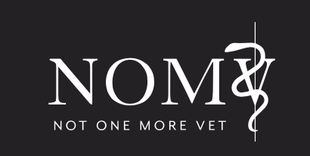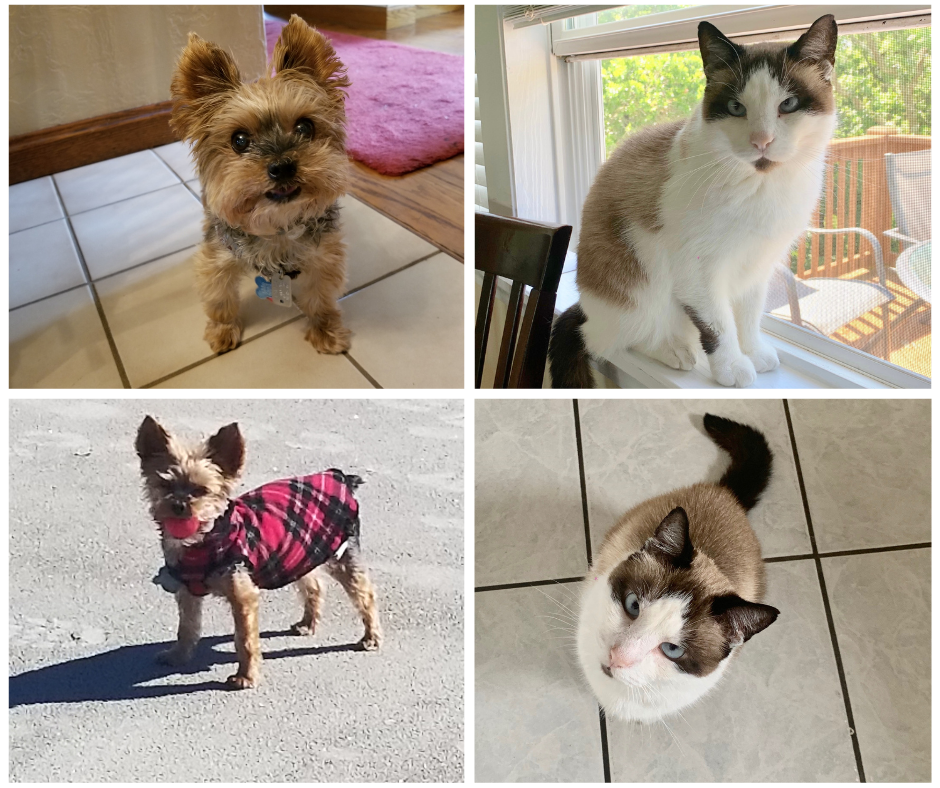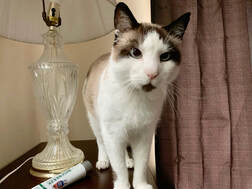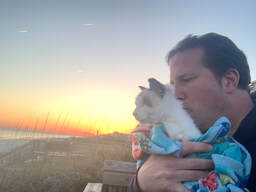THE OLLIE & STEVE FUND
A fund benefitting the North Carolina State Veterinary Hospital
All donations go directly to the NC State Veterinary Hospital "Ollie & Steve Fund"
Ollie & Steve have two very different stories. Ollie, a Yorkie, was given a positive diagnosis, but required an expensive procedure to survive. Steve, a Snowshoe cat, was given a sudden and bleak diagnosis of kidney failure. Just 36 hours later, one of Steve's guardians, Rheta, lost her father. His other guardian, Mike (Rheta's husband), had been out of town over a month for work. Mike rushed home the next morning hoping to see Steve one last time. Rheta's father would then pass that same night.
The Ollie & Steve Fund is unique. While it can certainly help when cost is the only barrier to an otherwise positive prognosis, it is one of the only funds that allows for variables other than the pet's long term prognosis to be considered. Each situation is evaluated independently and looks at the entire story, including human factors, while still keeping the main focus on the best decision for the pet.
The Ollie & Steve Fund also strives to bring attention to the increasing suicide rate in veterinarians across the country, and how pet guardians can help reduce this troubling trend.
The Ollie & Steve Fund is unique. While it can certainly help when cost is the only barrier to an otherwise positive prognosis, it is one of the only funds that allows for variables other than the pet's long term prognosis to be considered. Each situation is evaluated independently and looks at the entire story, including human factors, while still keeping the main focus on the best decision for the pet.
The Ollie & Steve Fund also strives to bring attention to the increasing suicide rate in veterinarians across the country, and how pet guardians can help reduce this troubling trend.
|
“Veterinarians and veterinary technicians or technologists had significantly higher rates of death by suicide, compared with findings for the general population..."
Tracy Witte Auburn University psychology associate professor Journal of the American Veterinary Medical Association |
|
The Stats
According to the American Medical Veterinary Association (AMVA) statistics, 1 in 6 veterinarians have contemplated suicide. A report released in 2020 by the AMVA in partnership with Merck Animal Health, found veterinarians are 2.7 times more likely than the general public to die by suicide.
|
Why?
Weighted down by crushing student debt, the compounding effects of compassion fatigue and grueling work schedules, veterinarians are committing suicide at alarming rates, often using the same drugs used to end the suffering of their animal patients.
|
How To Help
Veterinarians are often the targets of verbal and on-line attacks from upset pet guardians. Thank your veterinarian for what he/she does. Send a thank you card or flowers after a recent visit to the entire office staff. Compassion fatigue takes its toll. Let your veterinarian know how much happiness he/she has brought to your family through the care of your pet.
|
How the Ollie & Steve Fund Helps Veterinarians
The Ollie & Steve Fund also benefits veterinarians and their mental health. Vet clinics and hospitals must make sufficient money to stay in business and pay workers. Unlike in human medicine, most pets do not have health insurance, meaning all costs are paid out of pocket. The vet clinics and hospitals could not stay in business if they did expensive medical procedures for free or way below cost on a regular basis. While most veterinarians entered the profession out of a love for animals and a desire to help them, they have to deliver bad news nearly every day to anxious and devastated pet guardians. This is an especially difficult conversation to have when a procedure could save the pet's life, however the guardians just cannot afford it. The veterinarian, who loves animals, may have to then euthanize a pet who could have otherwise survived with a medical procedure. This leaves a devastated and often upset guardian, who may personally blame the vet for "only caring about money" and not saving the pet.
By providing funding when other funds will not, the Ollie & Steve Fund allows veterinarians to move forward with life saving procedures without the anxiety of wondering how the client will pay for it. This means less upset guardians, and perhaps even more thankful ones, who instead of verbally attacking the veterinarian, the guardian credits the veterinarian for saving a beloved pet. The veterinarian starts to feel like this is why he/she became a veterinarian once again and perhaps the good experiences begin to outweigh the bad.
By providing funding when other funds will not, the Ollie & Steve Fund allows veterinarians to move forward with life saving procedures without the anxiety of wondering how the client will pay for it. This means less upset guardians, and perhaps even more thankful ones, who instead of verbally attacking the veterinarian, the guardian credits the veterinarian for saving a beloved pet. The veterinarian starts to feel like this is why he/she became a veterinarian once again and perhaps the good experiences begin to outweigh the bad.
More Information

Not One More Vet is a non-profit committed to providing support to all members of veterinary teams and students who are struggling or considering suicide.
Click the NOMV icon to be directed to their website.
Click the NOMV icon to be directed to their website.



